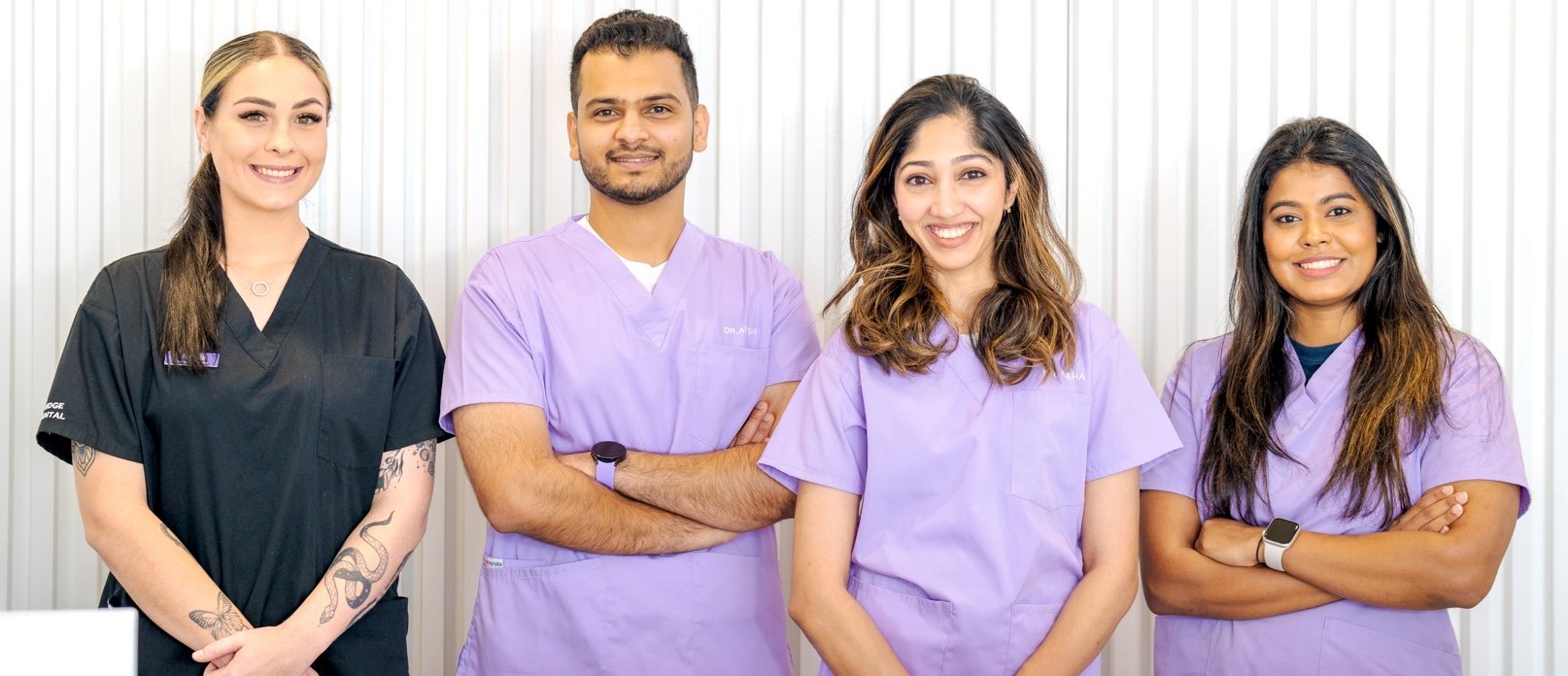
Toowoomba Wisdom Teeth Removal
Why It’s Important and What to Expect: An In-Depth Look at with Dr. Anish
Dental implants have revolutionised the field of tooth replacement, offering a durable, natural-looking solution for those with missing natural teeth. Dr. Anish of Middle Ridge Family Dental shares his expertise on the necessity, process, and benefits of dental implants.
Why It’s Important and What to Expect
Wisdom teeth removal is a common dental procedure, but it raises many questions for patients—especially when there are no immediate symptoms. Dr. Anish from Middle Ridge Family Dental provides valuable insight into why this procedure is often necessary and how it helps prevent long-term dental issues.
Why Wisdom Teeth Removal Is Necessary
As Dr. Anish explains, wisdom teeth are the final set of molars that typically emerge in a person’s late teens or early twenties. "While some people have no issues with them, many experience problems because these teeth can become impacted, meaning they don’t have enough space to grow properly," he says. When this happens, it can lead to pain, infections, and even damage to the surrounding teeth.
For these reasons, wisdom teeth removal is often required to avoid further complications. Impacted wisdom teeth can cause a range of issues, such as infections around the tooth and misalignment of nearby teeth due to overcrowding. If left untreated, the situation can worsen, with cysts or even gum disease becoming more likely.
Common Symptoms That Signal Wisdom Teeth Issues
If you’re unsure whether your wisdom teeth are causing problems, there are several symptoms to watch for. According to Dr. Anish, "Common symptoms include swelling, pain at the back of the mouth, difficulty opening the jaw, and gum infections." These symptoms often signal that the wisdom teeth are impacted or that they are pressing on adjacent teeth.
In some cases, patients may also notice changes in their bite or experience discomfort when eating. If these symptoms are present, it’s a good idea to schedule a dental evaluation to determine if removal is necessary. Early diagnosis is key to preventing more severe complications.
How Dentists Diagnose the Need for Wisdom Teeth Removal
Diagnosing wisdom teeth problems involves more than just a routine check-up. Imaging plays a crucial role in understanding the condition and position of the teeth. "We use panoramic X-rays or 3D cone beam imaging to get a clear view of the teeth's position, their relation to the jawbone, and other structures like nerves," Dr. Anish notes.
These advanced imaging techniques allow the dentist to assess whether the teeth are impacted and plan the safest and most effective course of action. For patients who are concerned about the risks, such as nerve damage, these tools are particularly valuable in ensuring that the procedure is carefully planned to minimize complications.
Treatment Options: Is Removal Always Necessary?
One of the biggest concerns patients have is whether wisdom teeth removal is always required. Dr. Anish reassures us that extraction isn’t a one-size-fits-all solution. "Removal is recommended when the wisdom teeth are impacted, causing pain, or if there’s a risk of infection or damage to other teeth. In some cases, if the teeth have erupted properly and are causing no issues, we can monitor them with regular check-ups."
For some patients, regular monitoring may be all that’s needed if their wisdom teeth are not impacted and are not causing discomfort. However, if the situation changes or symptoms arise, extraction may eventually become necessary to prevent more serious problems.
What to Expect During the Wisdom Teeth Removal Procedure
When extraction is necessary, understanding what happens during the procedure can ease a lot of anxiety. "The procedure usually begins with local anesthesia to numb the area, though some patients may opt for sedation if they’re anxious," says Dr. Anish. During the surgery, the dentist makes a small incision in the gum to access the tooth. In cases where the tooth is particularly difficult to remove, it may need to be sectioned into smaller pieces to ensure a safe extraction.
The entire process typically takes 45 minutes to an hour. Once the tooth is removed, the area is stitched up to promote healing, and the recovery phase begins.
Recovery and Aftercare Tips
After wisdom teeth removal, recovery is relatively straightforward, though it requires following some important guidelines. "Patients may experience swelling, discomfort, and some minor bleeding, but these are all normal and should subside within a week," Dr. Anish advises.
To ensure a smooth recovery, patients are given detailed aftercare instructions, which include applying ice packs to reduce swelling, eating soft foods, and taking any prescribed pain medication. Dr. Anish also warns about certain activities that can slow down recovery, such as smoking or using a straw, both of which can dislodge the blood clot and lead to a painful condition called dry socket.
Understanding the Risks and Misconceptions
While wisdom teeth removal is a safe and common procedure, there are still misconceptions that patients may have. One of the most prevalent is the belief that all wisdom teeth need to be removed. "One common misconception is that all wisdom teeth need to be removed, which isn’t always the case," says Dr. Anish. For some patients, the wisdom teeth may not cause any problems and can remain in place with routine monitoring.
Another concern that patients sometimes have is the risk of nerve damage, particularly when removing lower wisdom teeth. Dr. Anish reassures patients that while there is a risk, it’s rare, and modern imaging helps mitigate this. "With modern imaging, we can carefully plan the surgery to minimize risks," he explains.
The Cost of Wisdom Teeth Removal and Making It Affordable
Cost is often a consideration for patients when deciding on dental treatments. At Middle Ridge Family Dental, Dr. Anish and his team strive to make wisdom teeth removal accessible. "We work with various health funds, and we also offer flexible payment plans to help make the procedure more affordable for patients," says Dr. Anish.
The goal is to ensure that cost does not become a barrier to receiving necessary dental care.
Don’t Ignore Discomfort
Finally, Dr. Anish encourages patients to take any discomfort seriously and seek consultation early. "I would just like to remind patients not to ignore discomfort or delay a consultation if they suspect issues with their wisdom teeth. Early diagnosis can prevent more serious problems down the line."
With personalized care and a patient-first approach, Middle Ridge Family Dental is well-equipped to handle all aspects of wisdom teeth removal, ensuring both a safe procedure and a smooth recovery.

Ease Your Dental Worries: Expert Care in a Comforting Touch
Patients who are concerned about wisdom teeth removal can find peace of mind at Middle Ridge Family Dental. Dr. Anish emphasizes the practice’s focus on patient care and the use of advanced technology. "We use the latest technology, such as 3D imaging, to enhance precision and safety. Additionally, our team is highly experienced, ensuring that even complex extractions are done smoothly."
The practice is known for its compassionate care, guiding patients through every step of the procedure and recovery. Whether it’s the use of cutting-edge tools or the focus on aftercare, Middle Ridge Family Dental stands out for its comprehensive approach.
